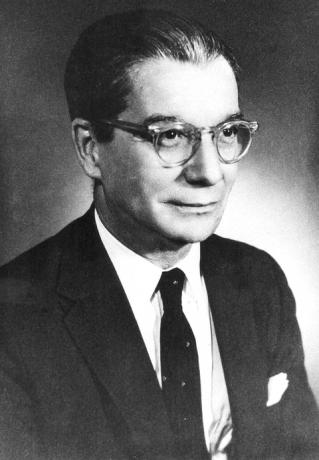
Anísio Spinola Teixeira he is considered one of the most important professionals who worked in education in Brazil. Born in Caetité (BA), Anísio was born in 1900 into an important family in the region.
see more
Discover the biography of Magda Soares and her main works
Who was Emmi Pikler? Discover its history and methodology
Teixeira graduated in legal and social sciences in the city of Rio de Janeiro in 1922. After graduation, he returned to his home state and helped with the educational reform in Bahia between 1924 and 1928. Soon after, he decided to further his studies in the United States, where he enrolled at Columbia University.

On American soil, Anísio came into contact with the pedagogical concepts of the philosopher and education professional, John Dewey. Dewey's theories profoundly affected Anísio's thoughts on the education system implemented in Brazil. He became a great supporter of the philosopher's ideas and even translated several of his books.
Throughout his political trajectory, Anísio Teixeira tried to reorganize the way of teaching in our country. He began in Bahia where he presented suggestions for reforming the state's education system. Despite efforts, his work was rejected on the grounds that it was not viable.
In Rio de Janeiro, Anísio managed to implement a teaching network that ranged from elementary to higher education, expanding access to education for different social strata. He was a great supporter of the implantation of public schools, without religious influence and that education was mandatory.
Anísio was the target of much criticism from the Catholic Church between the 1930s and 1950s. He believed that there should be respect for the religion of individuals, but that religious principles should not intrude on people's way of teaching.
The educator was constantly looking for new teaching and management methods that could be applied in Brazil. His main inspiration was the New School, where the school would be an agent of social transformation of individuals.
Teixeira's support for secularization and state control of education struck the church as a betrayal of the national character, and he was accused of being a naive servant of communist and atheist ideologies. However, in 1931, he was invited by Mayor Pedro Ernesto to take over as General Director of Public Education in the Federal District. Later, the post became known as the General Directorate of the Department of Education of the Federal District and, in 1935, the General Secretariat of Education and Culture.
As General Director of Public Education for the Federal District, Teixeira acquired a reputation as an educational reformer. The political climate at the time was becoming increasingly radical, leading to violent repression. Anísio was also affected by the repressive measures in force in Brazil at the time. He had to leave his position at the University of the Federal District, along with all his assistants, and return to Bahia.
In 1946, Anísio joined UNESCO as an adviser. When he returned to Brazil in 1947, he became Secretary of Education and Health for the Government of Bahia. During this period he fought for education to receive more attention from states and municipalities. He believed that the federal sphere should provide technical and financial support for the expansion of education in the most remote areas of the country.
after the Military coup of 1964, Teixeira, who was rector of UNB at the time, left the country, returning in 1966. The pioneer of public education in Brazil died in 1971.
